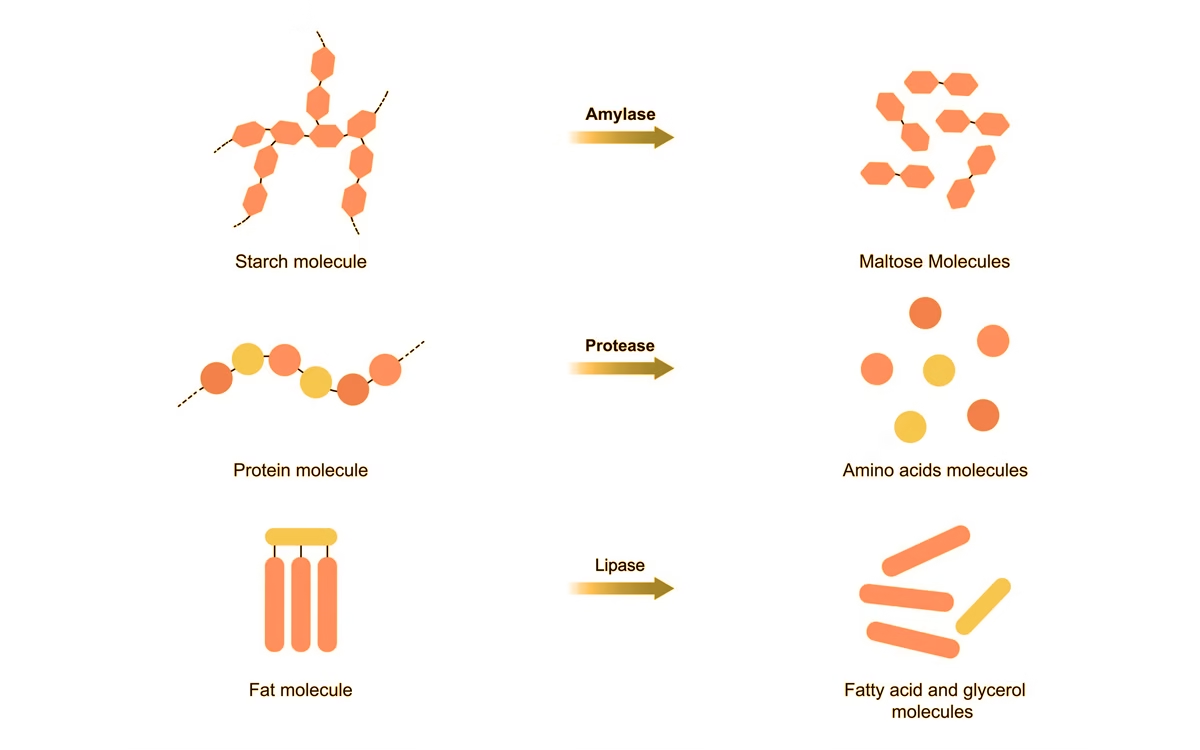Have you ever experienced bloating, discomfort, or sluggish digestion after eating and wondered what might be causing it? Digestive enzymes could hold the key to unlocking smoother digestion and better nutrient absorption. These naturally occurring proteins play a crucial role in breaking down the foods we eat, but sometimes our bodies need extra support. In this guide, we will uncover what digestive enzymes are, why they are essential, and how to choose the best supplement to meet your unique needs.
Understanding Digestive Enzymes
Digestive enzymes are proteins that help break down the food we eat into nutrients our bodies can absorb. Our bodies naturally produce these enzymes, but sometimes, due to factors like age, diet, or health conditions, we might not produce enough. This can lead to digestive discomforts such as bloating, gas, or indigestion.
Types of Digestive Enzymes
There are three primary types of digestive enzymes, each targeting specific nutrients:
- Amylase: Breaks down carbohydrates into simple sugars.
- Protease: Breaks down proteins into amino acids.
- Lipase: Breaks down fats into fatty acids and glycerol.
In addition to these, there are specialized enzymes like lactase (for lactose digestion) and alpha-galactosidase (which helps break down complex carbohydrates found in legumes and cruciferous vegetables).
When Might You Need Digestive Enzymes?
While many people produce sufficient digestive enzymes naturally, certain conditions can lead to deficiencies. For instance, individuals with exocrine pancreatic insufficiency (EPI) may require enzyme supplementation to aid digestion.
Choosing the Right Digestive Enzyme Supplement
Here are some smart tips to guide your selection:
- Identify Your Needs: Determine which foods cause you discomfort. If dairy is the culprit, look for a supplement containing lactase. For protein digestion issues, a protease-rich supplement might be beneficial.
- Check the Source: Digestive enzymes can be derived from animal sources (like pancreatin), plants (such as bromelain from pineapples and papain from papayas), or microbes. Choose one that aligns with your dietary preferences and any allergies.
- Look for Comprehensive Formulas: Some supplements offer a blend of enzymes to tackle various food components, which can be helpful if multiple types of foods cause issues.
- Consider Activity Units: Instead of just looking at the milligram amount, check the activity units (like FCC units) to understand the enzyme’s potency.
- Quality Assurance: Opt for supplements that are third-party tested to ensure purity and potency.
- Consult a Healthcare Professional: Before starting any supplement, it’s wise to discuss it with a healthcare provider, especially if you have underlying health conditions or are on medication.
Lifestyle Tips for Better Digestion
Remember, supplements are just that – a supplement to your diet. Incorporate these habits for optimal digestive health:
- Balanced Diet: Consume a variety of fruits, vegetables, lean proteins, and whole grains to support natural enzyme production.
- Chew Thoroughly: Digestion begins in the mouth. Chewing food properly can ease the digestive process.
- Stay Hydrated: Water aids digestion and nutrient absorption.
- Manage Stress: High stress levels can negatively impact digestion. Incorporate relaxation techniques into your daily routine.
Conclusion
Digestive enzymes play a crucial role in breaking down the foods we eat, ensuring we absorb essential nutrients effectively. While many individuals produce sufficient enzymes naturally, certain health conditions can lead to deficiencies, making supplementation beneficial. When choosing a digestive enzyme supplement, it’s essential to identify your specific digestive needs, consider the enzyme source, and consult with a healthcare professional to ensure it’s appropriate for you. Remember, a balanced diet and healthy lifestyle are foundational to optimal digestion.

